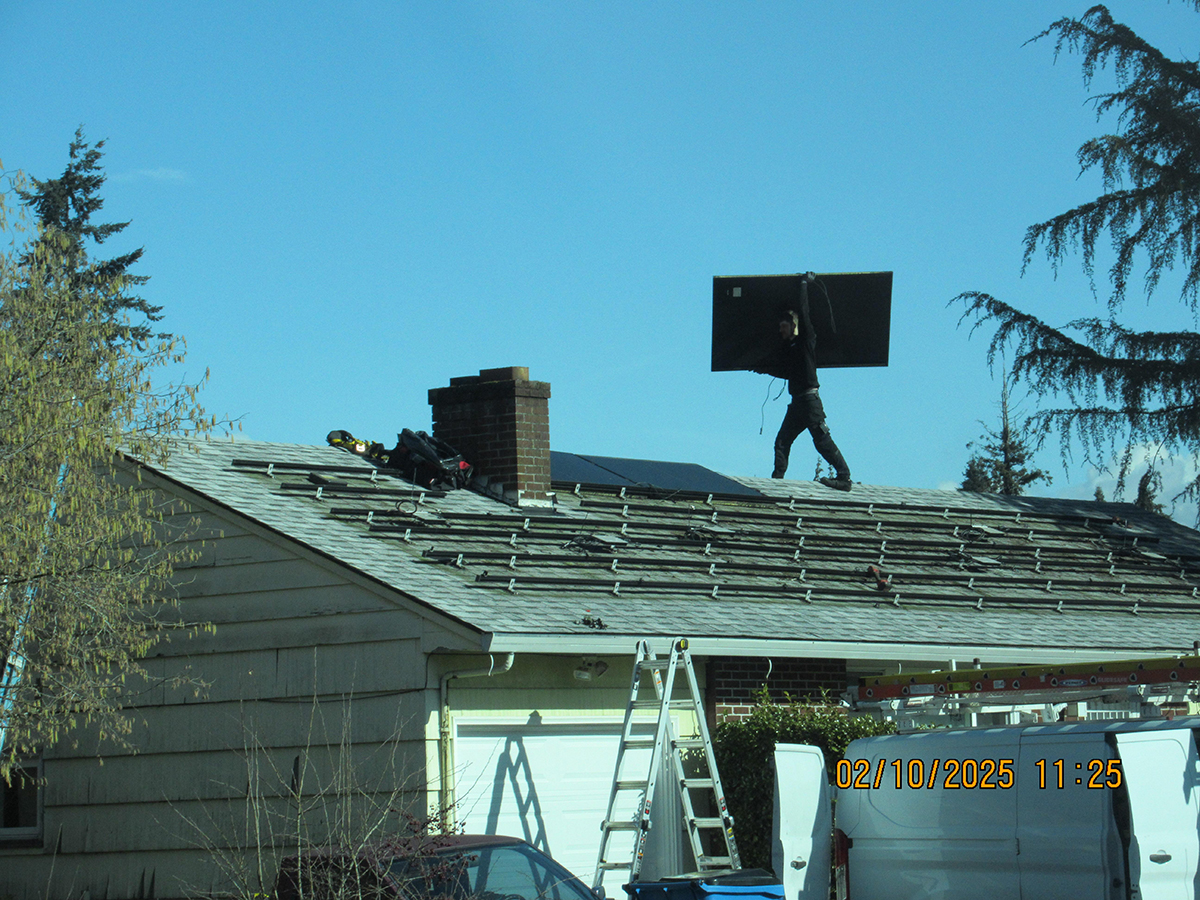L&I shines a light on solar panel company putting workers at risk of falls
TUMWATER — A company in the residential solar panel installation industry is repeatedly failing to protect its workers from the risk of falling off the roofs they work on. The Washington State Department of Labor & Industries (L&I) recently fined Purelight Power LLC more than $250,000 for the latest violations.
Solar power companies often go door-to-door, enticing homeowners with the lower electric bills and environmental benefits of solar panels.
The employees who work on the homes spend their days on rooftops, lifting, carrying, and installing or removing the panels, often at significant height. Washington law requires employees who work four feet off the ground or higher to have and use protection against the danger of falls. This includes work on walking surfaces, like rooftops, excavations, and around dangerous equipment.
Fall protection like anchored ropes and harnesses matter because falls in construction are common: more than 1,600 workers are injured in falls every year in Washington. It’s one of the leading causes of death in the construction industry, and it is entirely preventable with the right equipment, training, and safety practices.
Company knowingly allows employees to work without fall protection
In this case, L&I inspectors found two Purelight Power (formerly Solgen Power) workers removing solar panels to allow for installation of a new roof on a Vancouver home. The men were working 15 feet off the ground on a steep-pitched roof without wearing fall protection gear.
“No homeowner wants someone to get hurt or killed while working on their roof,” said Cari Anderson, deputy assistant director for L&I’s Division of Occupational Safety and Health. “The public should absolutely take advantage of L&I’s resources and information online to look into the safety history of the companies they’re hiring.”
The Medford, Ore.,-based company is facing $253,823 in fines for four willful serious violations and other worker safety issues. A violation is willful if the employer knew or should have known about the rules but ignored them anyway. It’s considered serious if the violation leads or could lead to significant injury or death.
In addition, the company was cited for misusing ladders, lack of training, and not having a written fall protection plan. They are appealing.
A history of violations
This is not the first time L&I has caught Purelight Power violating rules designed to protect their workers:
- February (Tacoma) — fined $99,000 for repeat serious violations after three workers were repairing solar panels on a roof without a fall protection system up to 20 feet off the ground. The case is under appeal.
- January (Clarkston) — fined $105,600 for repeat serious violations after two workers were installing solar panels on a roof without fall protection and misusing ladders. The company did not appeal.
- 2024 (Battle Ground) — fined $66,000 for one repeat serious violation for lack of fall protection worn by workers transporting solar panels onto a roof. The fine was affirmed after appeal.
Including these most recent fines, there have been 11 inspections since 2021 where L&I found issues with Purelight’s fall prevention. The company currently owes L&I more than $460,000 in outstanding penalties, although it is not required to pay fines while they are under appeal.
Money collected from fines goes into the workers’ compensation supplemental pension fund, helping workers and families of those who have died on the job.
Research your contractor
By using L&I’s Verify a Contractor tool, homeowners can make sure their contractor is licensed, bonded and insured. It also shows the company’s safety record including all violations.
Dina Lorraine, L&I Public Affairs, 360-972-4868.

Communication Services | www.Lni.wa.gov/news-events
See the latest L&I news releases